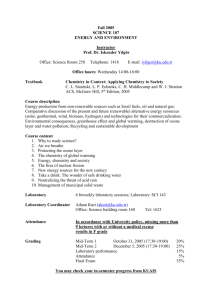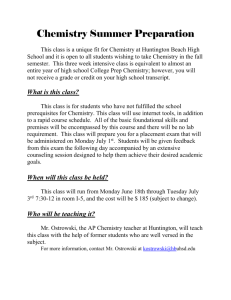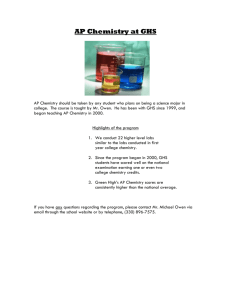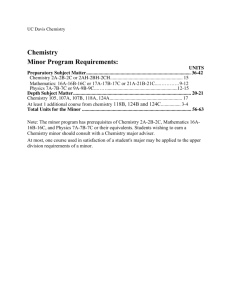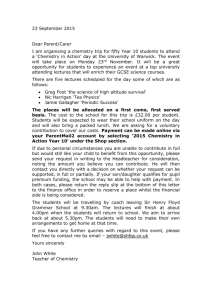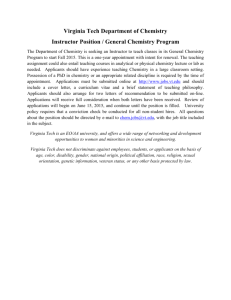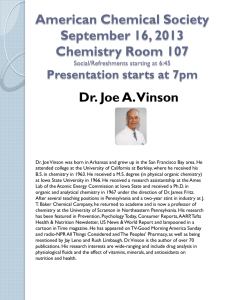In general chemistry courses, students learn to solve many
advertisement
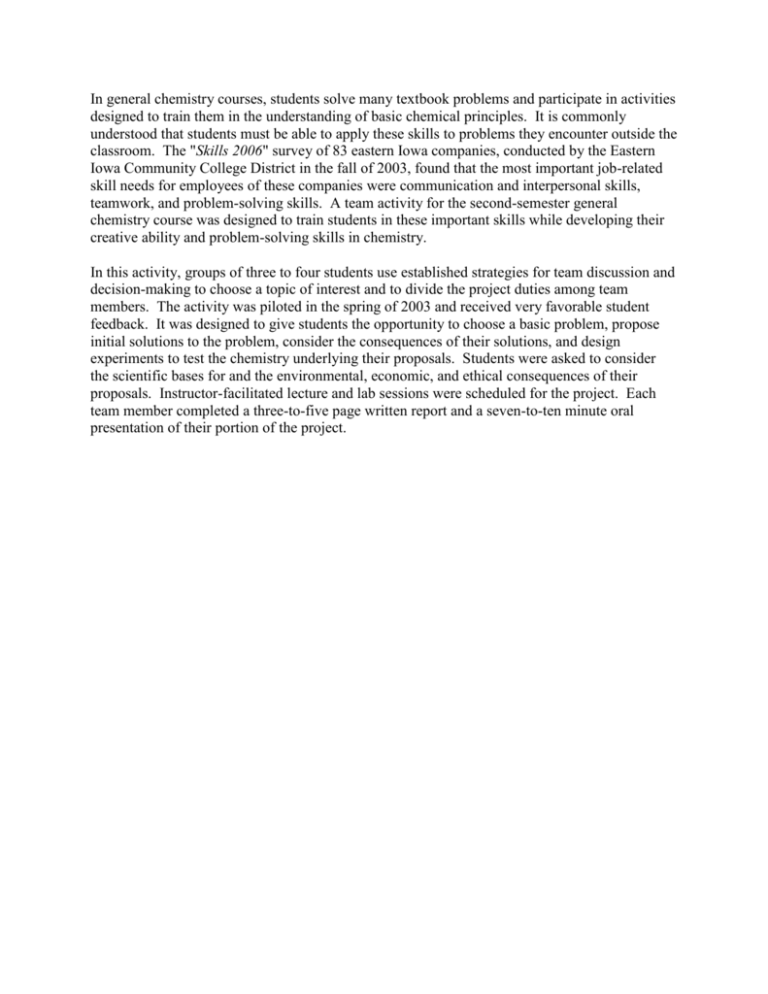
In general chemistry courses, students solve many textbook problems and participate in activities designed to train them in the understanding of basic chemical principles. It is commonly understood that students must be able to apply these skills to problems they encounter outside the classroom. The "Skills 2006" survey of 83 eastern Iowa companies, conducted by the Eastern Iowa Community College District in the fall of 2003, found that the most important job-related skill needs for employees of these companies were communication and interpersonal skills, teamwork, and problem-solving skills. A team activity for the second-semester general chemistry course was designed to train students in these important skills while developing their creative ability and problem-solving skills in chemistry. In this activity, groups of three to four students use established strategies for team discussion and decision-making to choose a topic of interest and to divide the project duties among team members. The activity was piloted in the spring of 2003 and received very favorable student feedback. It was designed to give students the opportunity to choose a basic problem, propose initial solutions to the problem, consider the consequences of their solutions, and design experiments to test the chemistry underlying their proposals. Students were asked to consider the scientific bases for and the environmental, economic, and ethical consequences of their proposals. Instructor-facilitated lecture and lab sessions were scheduled for the project. Each team member completed a three-to-five page written report and a seven-to-ten minute oral presentation of their portion of the project.





